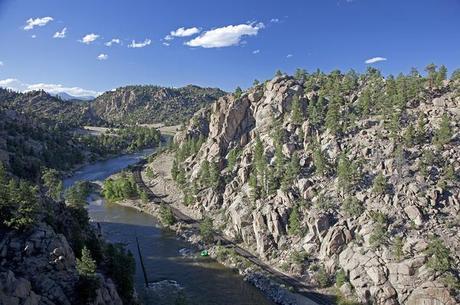
by Ann Morgan / Huffington Post
The streak continues.
I’m not talking about a winning streak. This one is a loser. Unfortunately, the biggest losers are the public. The U.S. House has continued its assault on our country’s magnificent public lands heritage. Members voted 222-201 on March 26 to make it tougher for presidents to use the Antiquities Act to establish national monuments.
The proposal by Rep. Rob Bishop, R-Utah, is the latest in a string of bills targeting the American tradition of holding lands in trust to be enjoyed by everyone, regardless of financial wherewithal or social standing. Other proposals have included mandates to increase drilling and mining on public lands, sell off millions of acres or roll back environmental protections for areas that include pristine watersheds, incredible fish and wildlife populations and unspoiled backcountry.
Bishop’s bill, HR 1459, would cap the number of times a president could use the act to protect public lands. A true irony is that some supporters insist the obstacles created by the legislation are intended to ensure public input. This from people who have endorsed efforts to steamroll landmark environmental laws and from a Congress notorious for going five years before approving any new wilderness areas — the longest drought since World War II, according to a report by the Center for Western Priorities.
In mid-March, President Barack Obama used the Antiquities Act to add 1,665 acres of Point Arena-Stornetta to the California Coastal National Monument. School children, area residents, business owners and many others turned out to celebrate the fulfillment of years of work and support by the public and members of California’s congressional delegation. Despite the widespread support, legislation to expand the national monument had stalled.
“If we wait for Congress, it’s never going to happen,” Scott Schneider, executive of Visit Mendocino County, told The Washington Post.
In Colorado, people have been campaigning for years to make Browns Canyon a national monument. The canyon on the Arkansas River is highly prized by hunters, anglers, rafters, bikers, hikers and wildlife watchers. A bill by Sen. Mark Udall and co-sponsored by Sen. Michael Bennet would protect 22,000 acres in the area. About 10,500 acres of that would be wilderness. Some people would like to see Obama use his pen to ensure that Browns Canyon is conserved for generations to come, but HR1459 could halt public will in its tracks.
While it’s difficult to say what kind of natural and historic treasures would have been lost without the Antiquities Act, we can point to several examples of the one-of-a-kind gems that have been conserved: the Grand Canyon, the State of Liberty, Devil’s Tower, the Colorado National Monument, Dinosaur National Monument, Chaco Canyon, Bandelier National Monument and Arches National Park.
Presidents of both parties have used the act since 1906 more than 100 times. More than 30 national monuments established under the Antiquities Act were later declared as national parks by Congress.
If proponents of HR 1459 are concerned about public input, I suggest they start listening to the local communities across the country that want to protect their public lands. Citizens want to continue the proud American tradition of investing in the wildlife, open spaces, remote spots, clean air and fresh water that make this country stand out among other industrialized nations.

